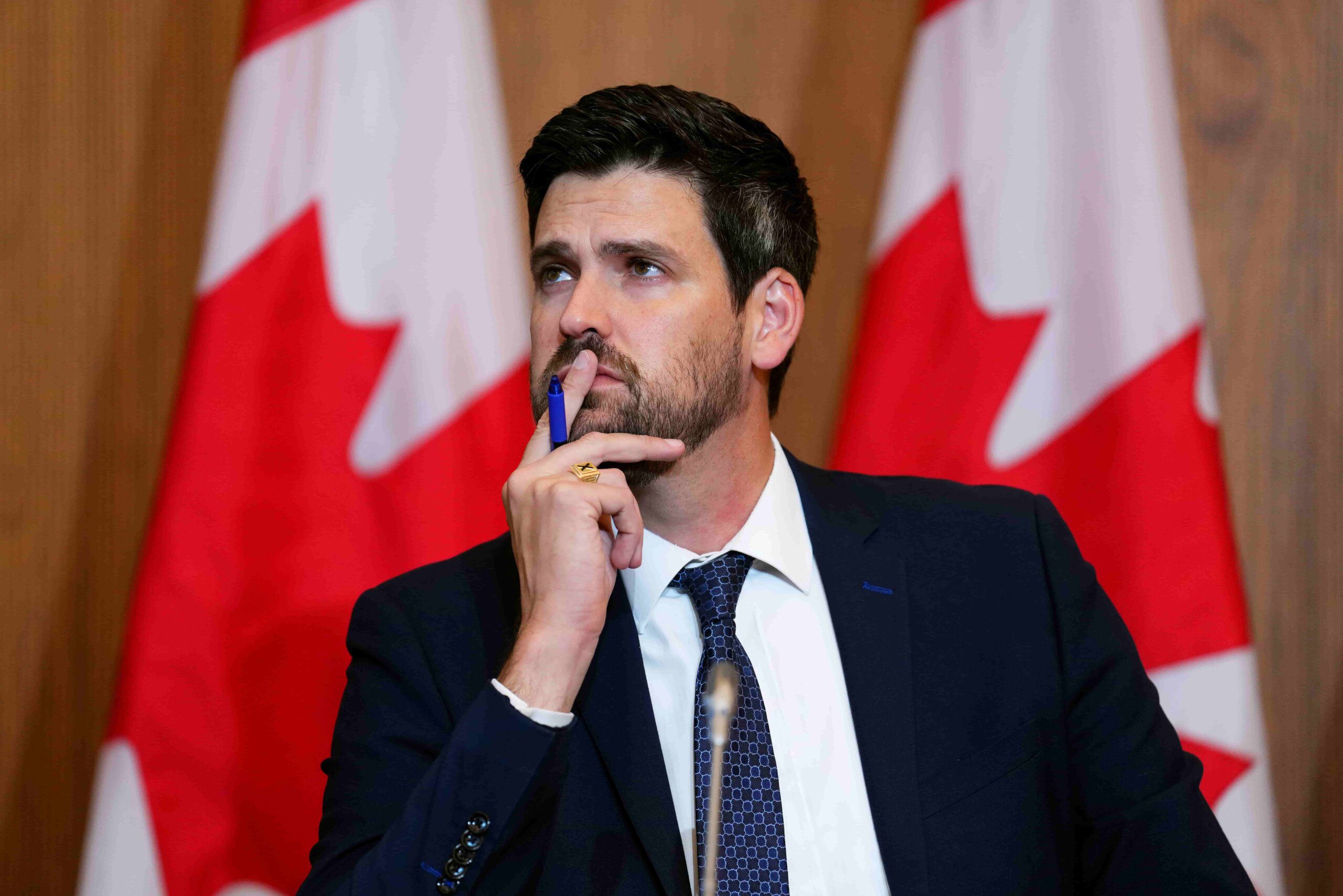Immigration minister Sean Fraser announced today that the federal government is making Rainbow Railroad a partner organization on par with the United Nations High Commission for Refugees (UNHCR) in order to identify those refugees most in need of resettlement and to facilitate their arrival in Canada. This means that Rainbow Railroad, a global not-for-profit organization that helps at-risk LGBTQ+ people get to safety worldwide, will be able to refer queer and trans refugees directly to the Canadian government through the Government-Assisted Refugees (GAR) stream, and that 250 additional spaces would be allocated immediately to them for this year.
“This policy has evolved for the past few months, but we’ve been working for the duration of my time as the minister of immigration on strengthening our partnership with Rainbow Railroad, and looking for opportunities for them to take part in the refugee referral process,” Fraser tells Xtra. “This was really led by Kimahli [Powell] at Rainbow Railroad, who presented a common-sense solution to us that will help us achieve our goals to afford protection to some of the world’s most vulnerable people who are being specifically targeted because of their sexual orientation or gender identity.”
Fraser notes that Rainbow Railroad worked well with the government in the past on efforts to protect people from Chechnya, and that there is an ongoing relationship with them as they are currently helping to resettle Afghans fleeing the Taliban.
“This next step is going to formalize their role within Canada’s refugee resettlement infrastructure, and provide a pathway to a safe haven for a significant number of people for hopefully many years to come,” Fraser says.
Typically, UNHCR will make determinations of who qualifies for refugee status, and help identify those at most risk. For queer and trans refugees, there is often trepidation around the existing international infrastructure around refugee resettlement because they are reticent to out themselves to authorities, particularly if their interim solution involves relocating to a third country where they may still not be safe.
“What the solution that Rainbow Railroad has developed with us allows for is someone to talk to a person or organization where they know they will be safe because they know the organization has a vested interest in protecting people like them,” Fraser says. “I expect we’re going to see, as a result, a significant number of people who would not have approached UNHCR or other entities who could refer refugees into different programs globally because of the risks it presented.”
Canada’s GAR stream relies on referral partners like UNHCR, though there are other partners on an ad hoc basis, such as is currently happening with resettling Afghans. Rainbow Railroad will be able to play this kind of role under this new partnership.
“The strength of this process is that Rainbow Railroad is plugged into community organizations on the ground who understand who the specific individuals are who are in the greatest danger,” Fraser says. “By having that pre-existing channel of information coming to a new referral partner who can flag individuals in need of Canada’s protection will allow us to more quickly and more accurately identify people facing severe risks as a result of their sexual orientation or gender identity.”
Once the government receives the referral, those people will come to Canada and receive the same suite of benefits, including income support and settlement services like language training and employment assistance.
Fraser adds that this will also make the process more effective because Rainbow Railroad has a demonstrated track record of doing the work, and that they understand who needs protection, so their referrals will allow the government to act more quickly.
“This happens at a time when the ordinary refugee resettlement infrastructure globally has been severely hamstrung both by the COVID-19 pandemic, and a significant withdrawal of support from the United States a few years ago,” Fraser says, but says the Biden administration has restored funding.
The 250 spaces allocated to Rainbow Railroad this year are in addition to the existing 59,000 government-assisted refugee spaces in the current Immigration Levels Plan.
“Should Rainbow Railroad demonstrate that they have the ability to fill those spaces and that we can integrate these people into Canadian communities, that’s when we would look to do more,” Fraser says. “We don’t want spaces to go unused.”
While Rainbow Railroad will determine those who are most in need, Fraser anticipates that there will be referrals from Afghanistan, and possibly claimants from Uganda in light of the draconian anti-gay bill signed into law there in May. Fraser notes that the government is looking at additional options for the Uganda situation that won’t cut into spaces allocated to Rainbow Railroad.
Regarding trans people in the U.K. and the U.S. seeking refugee protection in Canada, given the rising levels of persecution in their own countries, Fraser notes that the general policy in Canada is to first see if they are able to find safety elsewhere in their own country, known as an “internal flight alternative.”
“Before you become eligible for Canada’s protection, we have to demonstrate not only that you don’t have a safe opportunity to live in your community, but that the country in which you are located does not have the ability to provide protection to you,” Fraser explains.


 Why you can trust Xtra
Why you can trust Xtra


